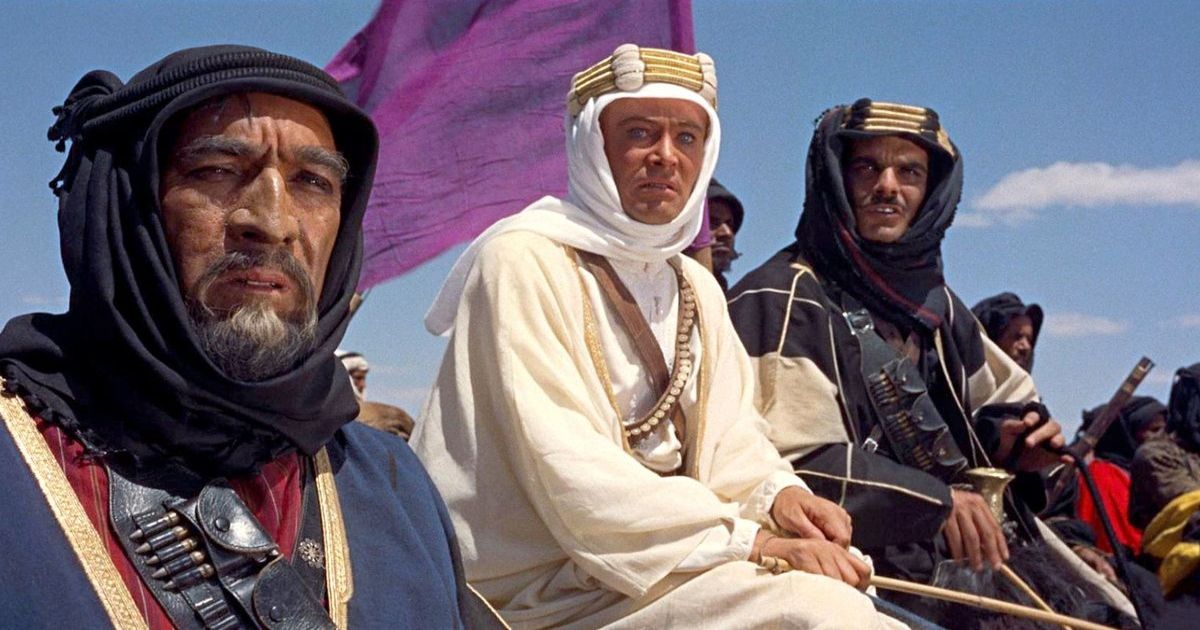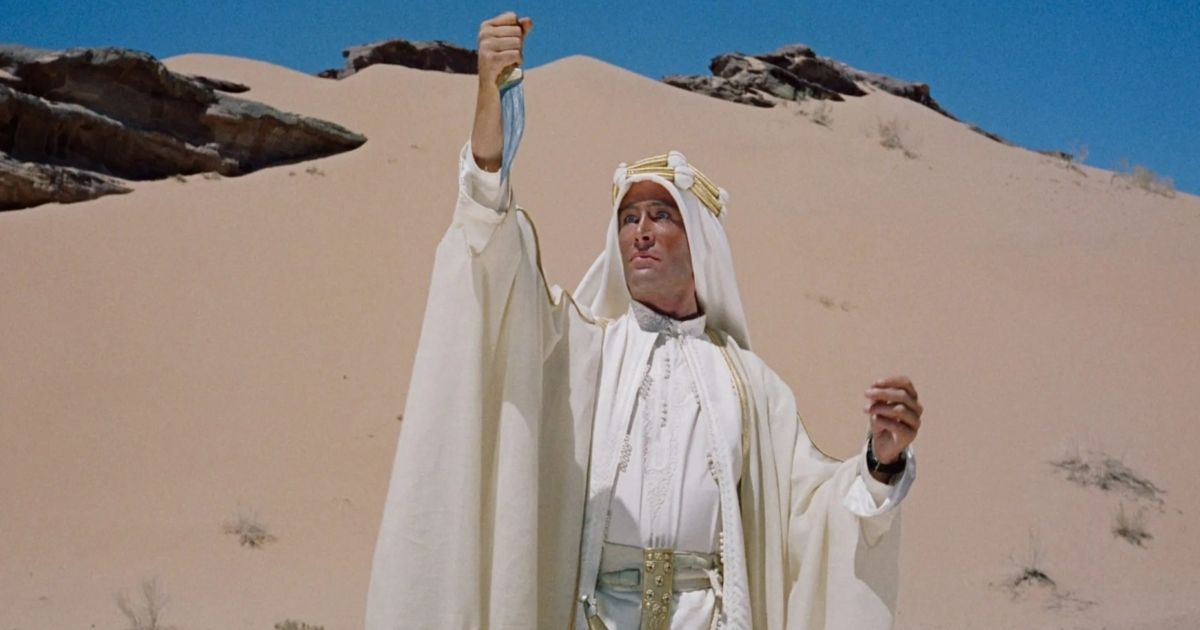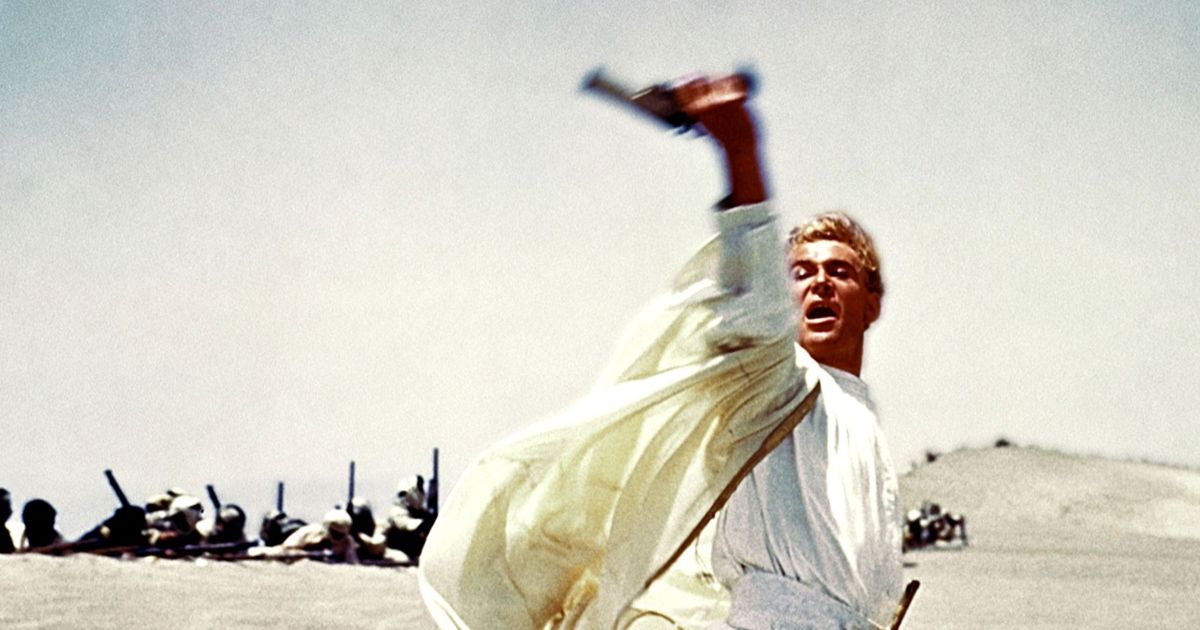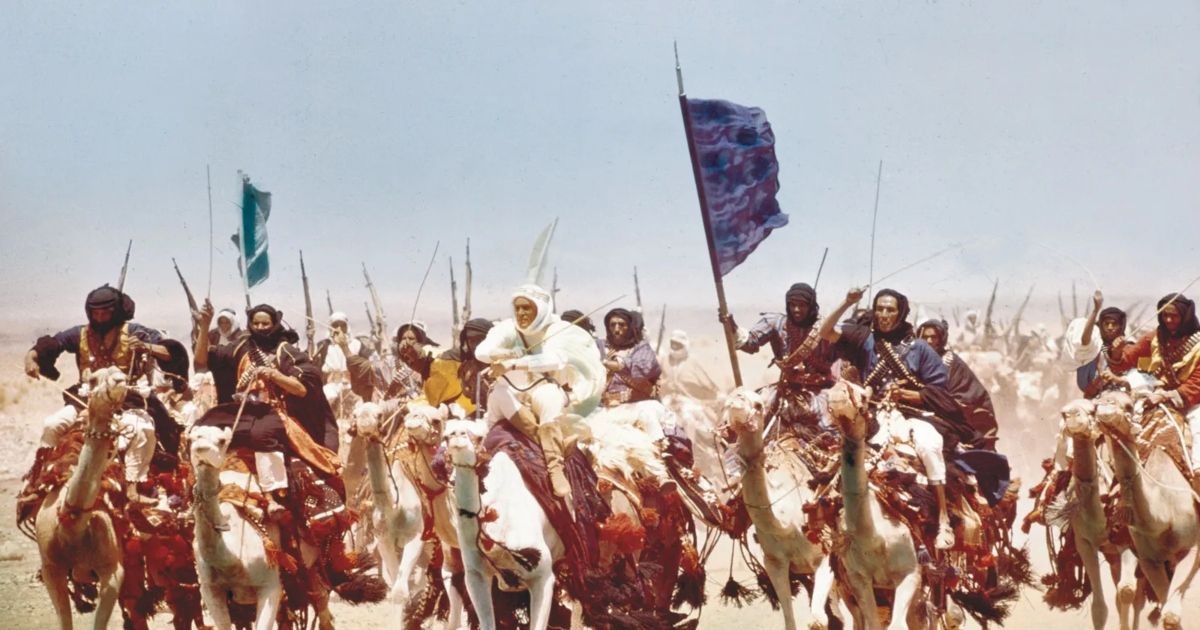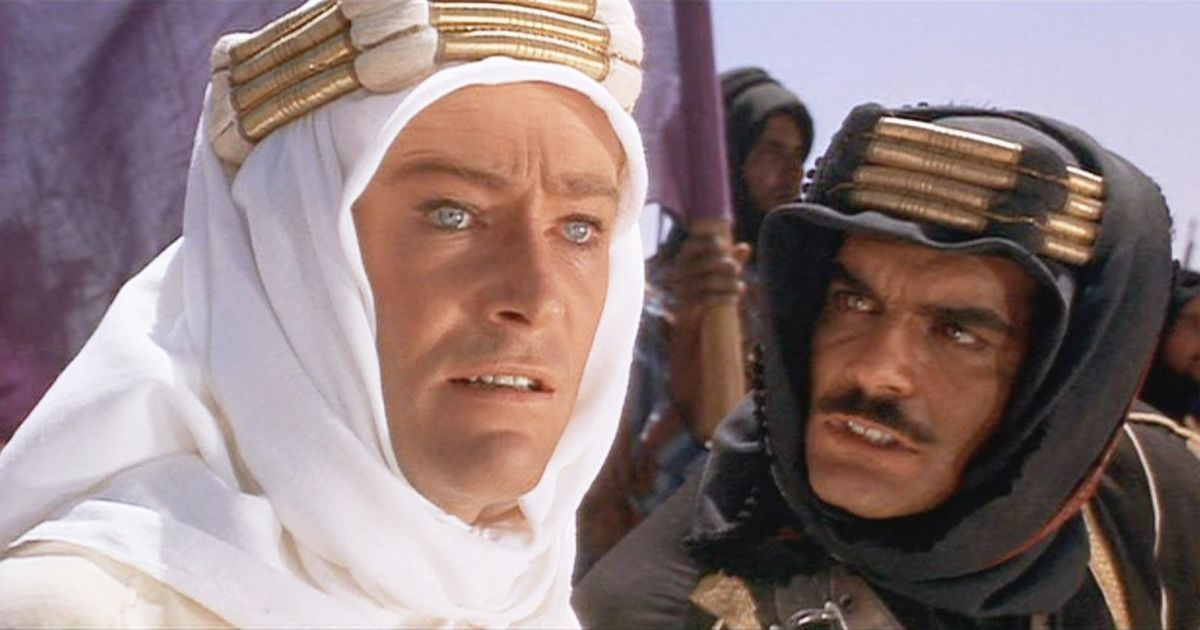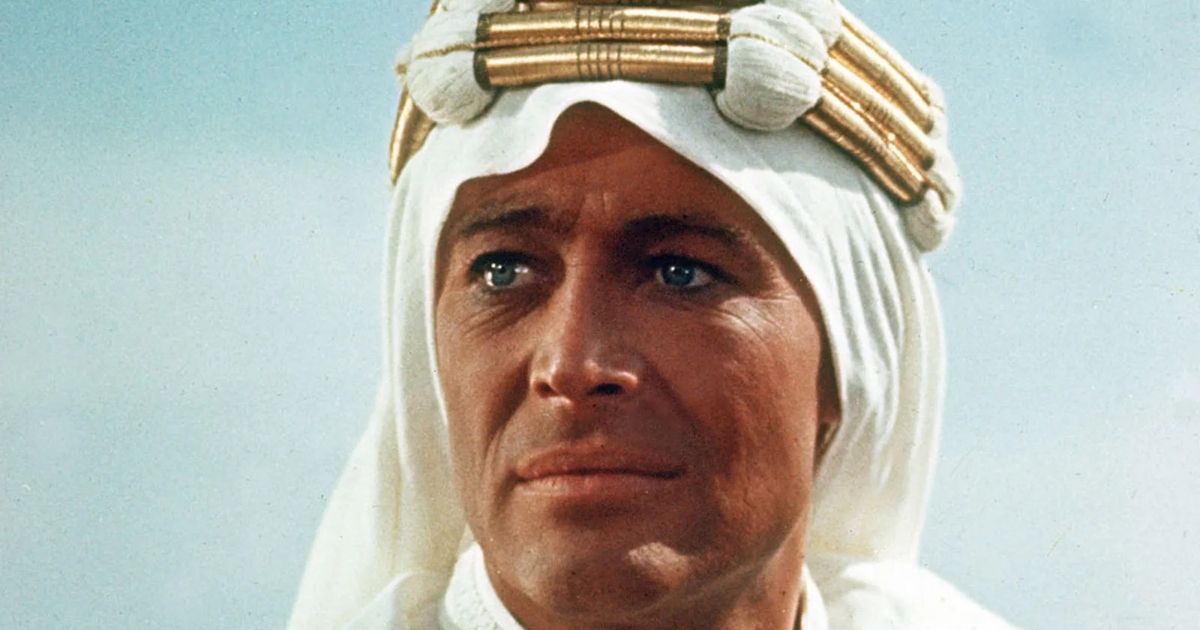There are many great movies out there, but only a handful of them are true blue masterpieces. 2001: A Space Odyssey, Citizen Kane, Tokyo Story, and Casablanca could all certainly lay claim to masterpiece status, though the claim could be contended by film fans with differing tastes. One rare film that is, by nearly all accounts, one of the shining achievements of the cinematic art form that few have dared to contend with is 1962’s Lawrence of Arabia. Directed by English filmmaker David Lean, the film is a sweeping historical epic full of painterly images, precise characterization, and some of the finest visual storytelling ever committed to film.
Simply put, Lawrence of Arabia is glorious. It is both extravagant and sublimely poignant, flamboyant and meditative. Let’s take a moment to reflect on this masterpiece, and identify what makes it so timeless.
The Amazing True Story
Lawrence of Arabia is based on the life of British army officer and revolutionary T. E. Lawrence, as well as his autobiography, Seven Pillars of Wisdom. Specifically, the film chronicles his exploits during the Arab Revolt between 1916 and 1918. During that time, Lawrence was an officer in the British Forces in Jordan, and was a major player in many attacks on the Ottomans throughout the Wadi Rum region. He became an important liaison to the Arab forces, and went against his official orders to support revolutionary Emir Faisal in the capturing of Damascus in 1918. Although biographers and historians have noted that the film Lawrence of Arabia contains just as much fiction as it does fact, the real life Lawrence did lead a fascinating life. He also was a genuinely important figure in the Arab Revolt, which director Lean’s whimsical melding of fact and fiction helped to shape into one of the best revolutions ever depicted on film.
The Truly Epic Scope
In the immortal words of Roger Ebert “What a bold, mad act of genius it was, to make Lawrence of Arabia, or even think that it could be made.” Indeed, pitching a 4-hour-long war epic that doesn’t contain a whole lot of action and instead focuses more on one man’s meditative journey would certainly be a tough sell to most major studios. Fortunately for cinema fans everywhere, Horizon Pictures and Columbia Pictures took a leap of faith and gave the green light to David Lean to make his giant movie. “Giant” may be selling it short, as Lawrence of Arabia is enormous in every sense of the word. From its larger-than-life main character Lawrence, to the massive revolt at the center of its plot, everything is grand.
The film was even shot on glorious Super Panavision 70mm film, one of the largest (and rarest) film formats ever used. The large-format cinematography brilliantly captures the vastness of the desert; the battle scenes are massive, and the script tackles big themes, such as identity and loyalty. The daunting 228-minute runtime might put skeptics off, but those who have experienced it will vouch for the necessity of its length. An epic story takes time to tell, and time has been kind to Lawrence of Arabia, proving its lasting impact on cinema history as one of the biggest and best historical dramas of all time.
The Incredible Soundtrack
One of the most memorable aspects of Lawrence of Arabia is its pulse-pounding score, which, according to Collider, is “simply glorious, intertwining beautifully with the moments of pure spectacle.” Maurice Jarre’s soundtrack effortlessly moves from delicate, thoughtful strings to swelling and triumphant orchestral extravagance. Incredibly, the beautiful 2 hours of score was composed in just six weeks by Jarre, who was not very well-known at the time and surpassed all expectations. This score later won the Academy Award, and is now heralded as one of the greatest movie soundtracks ever recorded. It is an essential part of the Lawrence of Arabia experience, every bit as stirring and gorgeously composed as the images.
The Phenomenal Performances
Lawrence of Arabia boasts a star-studded cast, and features some of the best performances of its era. Peter O’Toole’s sensitive portrayal of Lawrence is wonderful, and garnered him a win for best actor from the British Academy, plus nominations for both the Golden Globes and the Oscars. Omar Sharif was also nominated for an Oscar, and won the Golden Globe for “Most Promising Newcomer.” The film also features stellar performances from Anthony Quinn, Jack Hawkins, José Ferrer, Claude Rains, and the legendary Alec Guinness. The film would remain a high point in O’Toole’s long career, and is considered to be one of Alec Guinness' best movies.
The Adventure of a Lifetime
One of the most amazing things about Lawrence of Arabia is the way it blends genres. The film is equal parts period drama, exciting adventure, and thoughtful biopic, and it’s also one of the best war films of the ‘60s. Regardless of how you categorize it, however, Lawrence of Arabia is a magnum opus, chronicling a fascinating person’s amazing life, and outlasting many of its contemporaries as one of the greatest films ever made. The sweeping epic is one of the most awarded films in history, and is cherished by life-long enthusiasts and newcomers alike. Its legacy has spanned many lifetimes and will no doubt continue to do so, as it is a classic that is truly timeless and seems to only get better with age.

